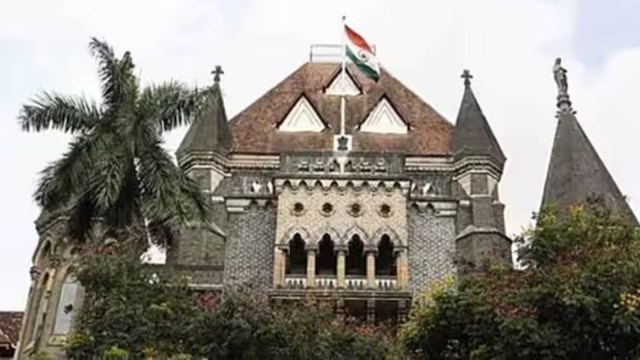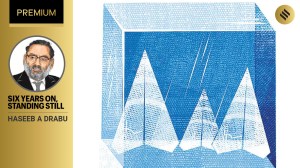‘Mass housing vexed problem’: Maharashtra only state where encroachers get free housing as reward, says Bombay HC
On Friday, senior advocate Darius Khambata appointed as Amicus Curiae to assist a special bench of Justices Girish S Kulkarni and Advait M Sethna in the matter began his arguments.
 The bench said that in present proceedings, endeavour would be to identify the issues or problems as directed by the SC after hearing all stakeholders and then put the same before the committee seeking permanent mechanism to deal with the same. (File Photo)
The bench said that in present proceedings, endeavour would be to identify the issues or problems as directed by the SC after hearing all stakeholders and then put the same before the committee seeking permanent mechanism to deal with the same. (File Photo)The Bombay High Court Friday remarked that Maharashtra is the only state where people get free housing after encroaching on government or other lands and it was required to ascertain whether the same is permissible under constitutional policy.
It said that “mass housing is a vexed problem” due to continuous encroachments and the same has a “cascading effect”.
The court made remarks after it began detailed hearings on a suo motu plea to consider ordering a performance audit of the Maharashtra Slum Areas (Improvement, Clearance and Redevelopment) Act, 1971 and to identify problems in its implementation and rehabilitation through private developers.
The High Court had last year initiated suo motu proceedings after the Supreme Court’s July 30, 2024 judgment tasked the HC to consider directing the government to constitute a committee for performance audit of the Act after it flagged seven problems with functioning of the law.
The SC was hearing appeal against the 2022 Bombay HC verdict that upheld cancellation of a slum-redevelopment/rehabilitation (SR) project granted in favour of the private real estate firm in 2003 for developing a slum in suburban Borivali.
On Friday, senior advocate Darius Khambata appointed as Amicus Curiae to assist a special bench of Justices Girish S Kulkarni and Advait M Sethna in the matter began his arguments.
He referred to poor construction of “vertical slums” in the form of Slum Rehabilitation (SR) buildings in the city and past judgments on the same.
Khambata said that it will have to be ascertained whether the rehab tenements which do not have dimensions and specifications similar to buildings constructed otherwise under Development Control Regulations (DCR) and if the same was as per state’s public housing policy.
He also said that the rehab tenements also do not have enough open space compared to any other buildings.
Justice Kulkarni said that it has to be seen if the past judgments of Supreme Court and High Courts are peculiar to the facts of the present case as in certain verdicts, the courts have gone “out of the way in public interest regarding mass public housing”.
The judge orally remarked, “It is a vexed problem and then encroachments…it is all cascading. There are private lands, state government, municipal corporation and central govt lands and also protected mangroves. Slowly, these mangroves are gone and slums are formed. Then again that particular mangrove area is declared as a slum area and then redevelopment. whether as per legislative policy this can be continued.. These are the issues (to be looked into).”
“We (Maharashtra) are the only state, thanks to the wonderful policy of the (state) government, that you encroach and you get free housing as a reward (for encroachment). In one of the judgments, we have observed whether this would be permissible. Whether this is constitutional policy recognised by the constitution? All these are connected issues (to be considered),” Justice Kulkarni added.
The bench said that in present proceedings, endeavour would be to identify the issues or problems as directed by the SC after hearing all stakeholders and then put the same before the committee seeking permanent mechanism to deal with the same.
Khambata submitted that more people come to cities like Mumbai for employment and start living in poor conditions in slum areas.
He said that the court and authorities will have to consider striking a balance to ensure that none has the right to trespass or encroach and get rewarded for that and also at the same time it has to be kept in mind that the people do not live in such conditions by their choice.
Khambata will continue arguments during the next hearing on February 27.












